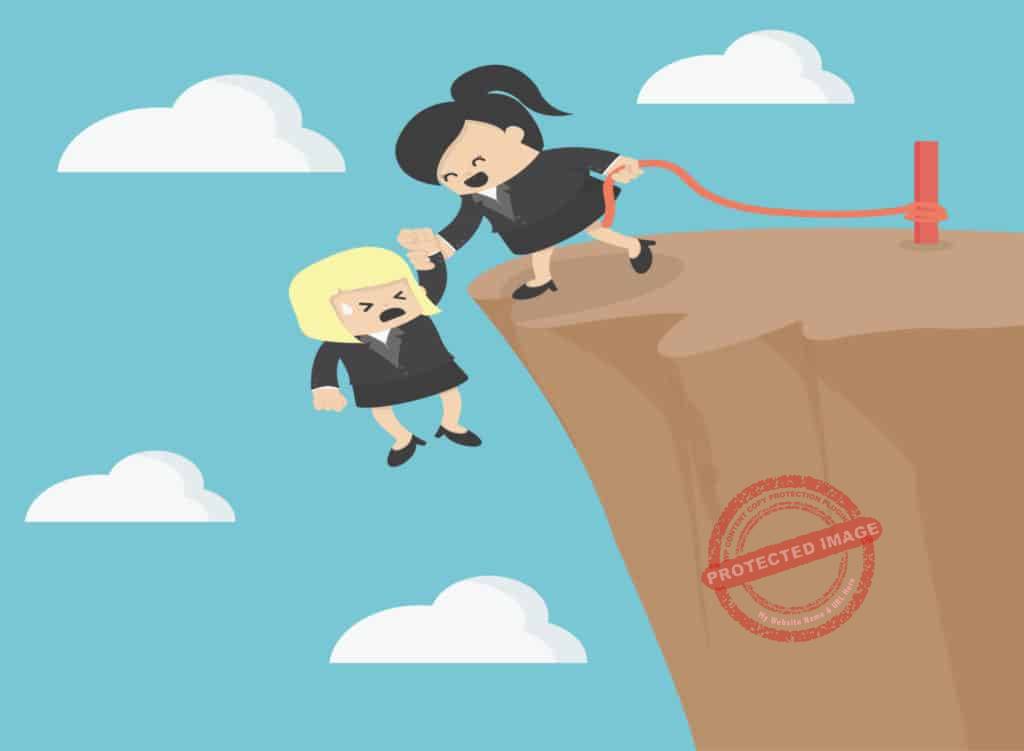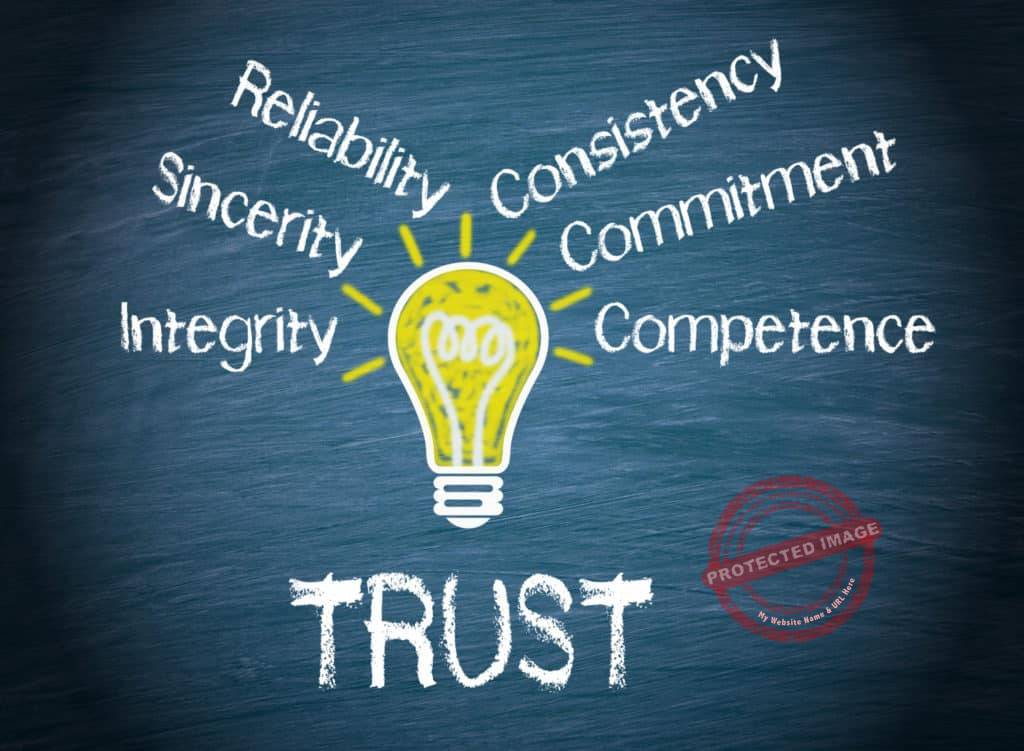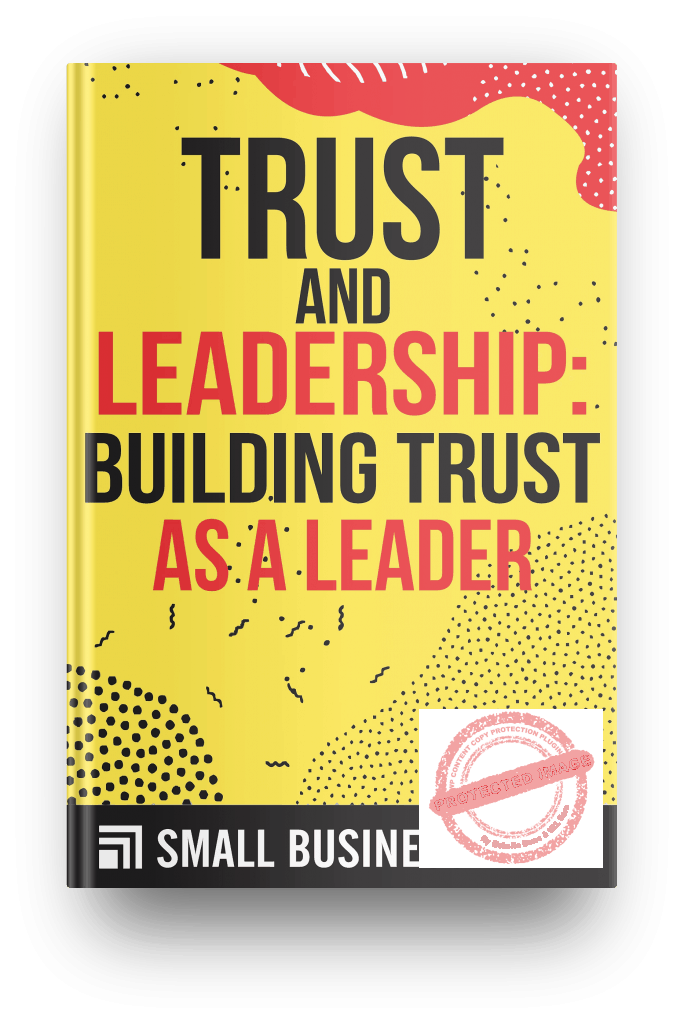What part exactly does ‘trust’ play in leadership? In this article ‘Trust and Leadership: Building Trust as a Leader’, you will learn the role and importance of building trust among your team members.
Trust is the core of leadership.
Most experts believe that leadership should primarily focus on three crucial elements: originality, relationship, and emotional quotient.
However, the fundamental factor that makes those three elements of leadership work is trust.
The Traditional Qualifications Of A Leader

Before, people believed that a team’s success heavily relied on their leader’s skills and proficiency — that the more powerful the team’s leader was, the higher the chances that the team would succeed.
Because of that, organizations chose leaders based on their capacity to win in competitions and/or the number of resources they’ve invested in their respective organizations.
Due to those traditionally required qualities needed, people believed that capable leaders were scarce and they were often supposed to be always at the top of the food chain.
Unfortunately, those beliefs pose a huge problem.
The thought of successful individuals as the best and only capable leaders is a totally false belief.
In short, people who can reach the top are not always ‘leader material’.
They might be always at the top and front and center, but it doesn’t mean that they are actually leading people.
An Example From A Television Show

If you’re familiar with the television show, ‘The Office’, then you know who Michael Scott (David Brent in the UK) is.
He was the best paper salesman in Dunder Mifflin’s Scranton branch during his time and was promoted as his branch’s regional manager.
The show followed him during his stint as the regional manager and the events that unfolded after he left the company.
He might have been a fictional character and had exaggerated bad qualities, but the woes of his employees against him are completely relatable.
If you watched the show, you will immediately know that he could not lead.
Sure, he was successful in his career as a salesman, but he couldn’t manage a small team or even earn his team’s trust and respect.
As a leader, his inability to build his team’s trust in his leadership in the workplace only made everything worse for him.
For those not familiar with the show, the point here is that being successful at something isn’t the same as being a capable leader.
However, it doesn’t mean that they cannot become one.
Trust Outweighs Most Other Leadership Traits

According to Forbes’ contributor Rob Asghar, ‘bad’ people often turn out to be the best leaders.
A good example of a bad apple who was able to lead a company to success was Steve Jobs.
Outside the company, people viewed him as the god of tech.
Inside the company, however, he was viewed by his employees — who got to interact with him frequently — as the biggest jerk in the world.
If that was the case, how then was he able to make Apple reach the height of its success?
Reading and hearing the stories of ex-employees under Jobs will immediately tell you that he was bad when it came to emotional connections and relationships.
But despite his attitude toward the people he led, why did those employees choose to stay with him?
The simple answer is trust.
Even though they disliked him as a person, they still trusted him.
They trusted him to lead them to success.
Regardless of his personality, Jobs’ employees never stopped looking up to him.
So as a leader, bad as he was, he was able to build his employees’ trust in his leadership.
Trust: The Core Of Good Leadership

Today, experts are emphasizing the importance of trust in leadership.
Leaders are expected to be people with powerful persuading powers and the ability to build their followers’ trust in their leadership.
The previous example, Steve Jobs, is a good case of a successful leader having the power to persuade.
To be good at persuasion, a person must be good in the art and science of trust.
Fortunately, almost everybody can learn how to build trust.
But before learning how leaders build trust in their leadership, take a minute to know more about how trust can affect your organization and team.
The Effects Of Trust On An Organization And Team

You might think that you can definitely do anything you want without learning how leaders build their team members’ trust in their leadership, right?
Well, you can go that route, but do realize that the importance of trust in leadership outweighs the effort that you need to put in in order to be trusted.
Trust strengthens the working relationship of those involved.

If a leader delegates a task to a team member, the leader puts himself at risk of whatever consequences if the team member fails to accomplish the delegated task.
There needs to be reciprocal trust between the leader and the team members that the delegated tasks will be performed well and to the benefit of the organization.
On the flip side, the team member puts himself at risk of whatever consequences if his leader fails to give him a task that he can actually accomplish.
In this instance, the leader is trusted to delegate tasks according to people’s capabilities.
Lack of trust in the workplace and lack of trust in you — whether you are a leader or follower — will only equate to poor performance.
Nobody trusts anybody to do anything, which will greatly hinder the productivity of the entire team and organization.
How To Build Trust: Understanding The Qualities Of Trust

Before you go about gaining the trust of your team, you must be very familiar with the qualities of trust.
Here are some of them.
Honesty And Integrity

Honesty is the biggest driver when it comes to building trust.
By letting people know and believe that you only speak the truth, they will quickly develop trust in you and your words.
However, being honest while building trust can be challenging.
First of all, people have a tendency of telling others what they want to hear instead of what they really mean, especially if they talk face to face.
After all, the truth can be offensive most of the time.
And telling people what they want to hear prevents any friction and potential conflicts.
However, it doesn’t mean that you should always speak everything that is on your mind.
There should be a balance.
You need to have a bit of tact or discretion.
For example, if you have something unpleasant in mind and no one asks for it or there is no need for that information to be out in the open, don’t say it.
You’re not lying if nobody is asking.
Also, that’s not being dishonest, but being tactful.
Transparency

Sure, you can get away with not saying things when not asked.
You can get away with it and still be considered an honest person.
However, you should know when to release information that your team needs to know.
As their leader, you can build more of their trust in your leadership if you communicate openly with your team.
But you should be mindful of what you say and how you say it.
Again, you should have everything balanced.
For example, a few of the topics your team should always know about are; your progress as a team and the organization’s development.
Do not tell them gossip or any classified information.
Remember that being transparent is one of the most powerful ways to build trust in the workplace.
Telling them important information, without them asking for it, makes them feel important.
But again, don’t overdo it.
Commitment And Accountability

Developing trust requires commitment and accountability.
As a leader, committing to your word and being accountable for your actions — whether they create failure or success — will build or generate trust in your leadership from your followers.
Your team will recognize your commitment to the work you are doing and trust you for not passing the buck when setbacks happen.
Consistency And Reliability

Being consistent in your responsibilities as a leader builds trust in the workplace.
Say that one of your responsibilities as a leader is to generate a report every day when your team’s shift ends.
Doing it consistently makes your team believe that you will do it every day without fail.
They trust you to create that report every single time.
If you perform all your responsibilities as a leader consistently, they will believe and trust that you will never fail or stop being a leader.
How To Develop Trust
Lead By Example

You can capture the trust of your followers with all the positive traits, mentioned in the previous sections, you display as a leader.
Being the best example there is in an organization allows you to spread the best behavior and cultivate a positive, productive culture in your work environment.
As a bonus, leading by example allows you to directly influence your followers to behave like you.
Thus, you can say to them that if you can do it, then they can do it too.
The bottom line is that if you don’t practice what you preach, you will fail to gain your staff’s trust and respect, despite all the trust-building activities you implement.
Open Communication

As a leader, one of the best ways to build your team’s trust in your leadership is to show them that you are open-minded and accessible.
Your team members should never be afraid to talk or communicate with you.
On the other hand, you must also be a good communicator.
You should be able to convey your thoughts effectively.
Being a good communicator means that you should be a good listener, too.
Sharpening your skills in reading non-verbal cues or body language will help a lot in making others trust you.
If your team doesn’t approach or confide in you, you can initiate conversations where they will be carefully forced to talk and you to listen.
The easiest way to start a conversation wherein they will talk a lot is to ask open-ended questions.

For example, you can ask them how their projects are going along.
You can also ask them if things are going well.
Lastly, you can ask about the opportunities they can work on to make their work easier and make their goals closer to achieve.
Good communication leads to a better relationship with your people.
It nurtures a positive work environment and establishes mutual trust.
Simply put, if they can tell you all the things they have in mind, that means they trust you.
Self-Awareness

As a leader, you should always be aware of what you say and what you do because it is one of the keys to building or developing the trust of your team in your leadership.
Pay attention to every interaction you have with your team.
You never want to speak about anything that could easily make them doubt or despise you.
Also, never commit to things you cannot do, especially on things that you cannot control.
Do not promise anything you cannot deliver.
Don’t do anything that you cannot be accountable for.
Passion

Aside from being honest with your team, you should be honest with yourself.
Being honest with yourself lets you easily master how to develop trust within your team.
You should start by making sure that you are sincere in reaching yours and your team’s goals.
There are goals that you must achieve even if you don’t want to.
The strategy during those times is to redirect your passion to your organization or team instead.
Be honest if you have no interest or ‘love’ for what you are doing.
However, make sure that you reassure your team that your heart is set on achieving progress for all of you and the organization.
Good Management Skills

You should always be the expert on the things you need to do.
No one would trust someone in a higher position if he or she cannot do what he or she should do.
One of the main skills you should have is management.
If you cannot show that you can manage your responsibilities, your team cannot trust you to manage them well.
In addition, always remember that you should manage work and how things are done and people.
When operations are not productive or efficient, do not just set your sights on your team members.
Look at the external components and troubleshoot those first.
For example, your team may be slow when it comes to inputting data on your database.
You need to check your database and their computers first.

The database might be slow or their computers are outdated.
If those two are fine, that’s the only time you should check on your team.
Also, management is not about work all the time.
You can have a break from time to time to lighten the mood and remove some of the accumulated stress that your team has.
Express Gratitude

Sure, you might be in a situation where your team members are paid for their work.
However, it doesn’t mean that you shouldn’t thank them for their hard work.
Always take some time to show your gratitude to them, especially if they have performed well.
As a leader, giving credit when and where it is due will go a long way in building the trust of employees under your leadership.
Look At The Big Picture

In leadership, this should be done at the very start when building trust within your team and earning their trust in you as their leader.
Your team must know where they are and where they are going. They should know what the organization wants to achieve and what they need in order to do that.
First, explain to them the organization’s goals.
Second, let them know the culture of your organization and how you manage your team.
Third, discuss your role and their role in the team and organization.
You must set and manage their expectations.
They should know what would happen if they succeed or fail.
They should know the rewards and consequences of everything they do while they are working for the organization.
Setting their expectations can let them focus on what they need to do.
They will know and trust that all their work and effort will be worthwhile.

To make sure they know all about the big picture, regularly ask them to recap all of those things to you.
Then find out from them, their feelings about all the goals they need to reach.
Ask them if they feel that those goals are achievable and really listen to what they have to say.
Always remind them of the big picture, to keep them constantly motivated and refresh their trust in you, their teammates, and the organization.
Delegate Properly

To get trust, you have to give trust.
One of the best ways to establish trust is to give your team important tasks that you usually do.
You can start with low-risk projects with tight deadlines.
This does not end with the delegation of the task.
You should work together with your team member initially.
Once they get hang of the work they need to do, entrust the project to him or her completely by leaving him or her alone.
If the team member successfully accomplishes the project, give him or her another challenging one.
However, if the person fails the task or project, own the consequences and find ways to sharpen that team member in other areas of work.
Final Thoughts

As a leader, you have a lot on your plate, but before you tackle your to-dos, it’s important to build the trust of your team in your leadership.
Gaining their trust in you as a leader will motivate them and increase overall productivity and efficiency, making your team function like a well-oiled machine.
You have nothing to lose and everything to gain if your team has faith in your ability to lead them and the organization toward success.
How has your experience been like as a leader in building trust with your team members?
Do share with us!
Click on Buy Now For a PDF Version of This Blog Post
 |










